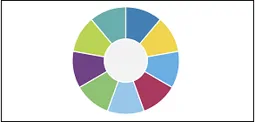Professional learning
Supports the delivery of high standards and aspirations for all learners, how schools develop as learning organisations and the entitlement for practitioners to access quality professional learning.
This is a new area - your feedback will help us improve it.
Professional learning resources
Access to a range of professional learning resources, experiences and opportunities.
-
 Leading professional learning
Leading professional learning Introduces the schools as learning organisations model and the entitlement for professional learning to develop the enquiry and pedagogic skills of all staff
-
 Identifying professional learning needs
Identifying professional learning needs The role of professional standards and professional development review in identifying professional learning needs of practitioners
-
 Planning and designing professional learning
Planning and designing professional learning Models for designing quality professional learning and creating the time for practitioners to engage
-
 Career-long professional learning
Career-long professional learning Outlines the national professional learning programmes available to practitioners
-
 Workload and well-being
Workload and well-being Information about how we’re addressing workload and well-being of practitioners
-
 Regional education consortia
Regional education consortia Information on a range of cross regional professional learning opportunities that are available to all staff across Wales
- Developing leaders
Access to a range of information for senior leaders and headteachers
- Assisting teaching
Find out more about professional learning for teaching assistants and support staff
- Supply teachers
Information on support available for supply teachers
- Initial teacher education (ITE)
Information on GOV.WALES about the different routes to becoming a teacher
- Developing Welsh in your school
Support for schools to develop the teaching and use of the Welsh language
- Useful contacts
Contact details for a range of professional learning partners


